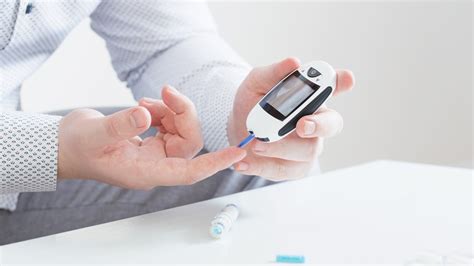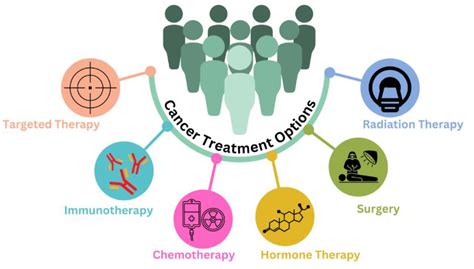Intro
Manage blood sugar levels with effective control methods, including diet, exercise, and monitoring, to prevent diabetes complications and maintain healthy glucose levels, stabilizing insulin sensitivity and metabolism.
Maintaining healthy blood sugar levels is crucial for overall well-being, and it's a topic of great interest for many individuals, especially those diagnosed with diabetes or prediabetes. Blood sugar control is not just about managing a specific health condition; it's also about adopting a lifestyle that promotes energy balance, weight management, and the prevention of chronic diseases. The importance of blood sugar control cannot be overstated, as unmanaged blood sugar levels can lead to serious health complications, including cardiovascular disease, kidney damage, and nerve damage. In this article, we will delve into the world of blood sugar control, exploring its significance, the factors that influence it, and practical strategies for achieving and maintaining healthy blood sugar levels.
The human body is designed to regulate blood sugar levels within a narrow range, and this process is primarily controlled by the pancreas, which produces insulin and glucagon, hormones that lower and raise blood sugar levels, respectively. When we eat, our body breaks down carbohydrates into glucose, which is then absorbed into the bloodstream, causing blood sugar levels to rise. In response, the pancreas releases insulin, facilitating the entry of glucose into cells, where it's used for energy or stored for future use. However, for individuals with diabetes or insulin resistance, this process is disrupted, leading to elevated blood sugar levels that can have detrimental effects on health.
Understanding the intricacies of blood sugar control is essential for developing effective strategies to manage and regulate it. Factors such as diet, physical activity, stress levels, and sleep quality all play significant roles in influencing blood sugar levels. Furthermore, certain medications, including those used to treat diabetes, can also impact blood sugar control. By grasping the complexities of blood sugar regulation and the factors that affect it, individuals can make informed decisions about their lifestyle and treatment options, ultimately leading to better health outcomes.
Blood Sugar Control Mechanisms

The body's natural mechanisms for controlling blood sugar levels are intricate and involve the coordinated effort of several organs and hormones. The pancreas, as mentioned, plays a central role through the production of insulin and glucagon. Insulin lowers blood sugar levels by facilitating the uptake of glucose by cells, while glucagon raises blood sugar levels by stimulating the liver to release stored glucose (glycogen) into the bloodstream. Other hormones, such as cortisol and adrenaline, can also influence blood sugar levels, particularly in response to stress.
Role of Insulin and Glucagon
The balance between insulin and glucagon is crucial for maintaining healthy blood sugar levels. Insulin is often referred to as the "key" that unlocks cells, allowing glucose to enter and provide energy or be stored for future use. Glucagon, on the other hand, acts as a "switch" that turns on the liver's glucose release mechanism when blood sugar levels drop. This delicate balance is essential for preventing both hyperglycemia (high blood sugar) and hypoglycemia (low blood sugar), both of which can have serious health implications.Dietary Influence on Blood Sugar Control

Diet plays a significant role in blood sugar control, with certain foods affecting blood sugar levels more than others. Carbohydrates, in particular, have a substantial impact because they are broken down into glucose during digestion. The glycemic index (GI) is a measure of how quickly foods raise blood sugar levels, with high-GI foods causing a more rapid increase. Foods with a low GI, such as whole grains, fruits, and vegetables, are generally recommended for individuals seeking to manage their blood sugar levels.
Benefits of a Balanced Diet
A balanced diet that includes a variety of whole, unprocessed foods can provide numerous benefits for blood sugar control. Such a diet typically includes: - High-fiber foods: Fiber can slow the absorption of sugar and improve insulin sensitivity. - Lean proteins: Protein can help regulate blood sugar levels and provide a feeling of fullness. - Healthy fats: Fats like those found in avocados, nuts, and olive oil can improve insulin sensitivity and provide sustained energy.Physical Activity and Blood Sugar Control

Regular physical activity is another critical component of blood sugar control. Exercise can improve insulin sensitivity, allowing glucose to enter cells more efficiently, and it can also help lower blood sugar levels by facilitating the uptake of glucose by muscles. Both aerobic exercises, such as walking or cycling, and resistance training, such as weightlifting, are beneficial for blood sugar management.
Exercise and Insulin Sensitivity
The relationship between exercise and insulin sensitivity is well-documented. Regular physical activity can enhance the body's response to insulin, making it easier to manage blood sugar levels. This effect can be observed even after a single bout of exercise, although regular, long-term exercise is necessary for sustained improvements in insulin sensitivity.Stress Management and Sleep Quality

Stress and sleep quality also play significant roles in blood sugar control. Stress can cause an increase in cortisol and adrenaline, hormones that can raise blood sugar levels. Poor sleep quality, on the other hand, can disrupt the balance of hormones that regulate glucose metabolism, leading to higher blood sugar levels and decreased insulin sensitivity.
Techniques for Stress Reduction
Techniques such as meditation, yoga, and deep breathing exercises can help reduce stress levels. These practices not only lower cortisol levels but also improve overall well-being and resilience to stress. Furthermore, establishing a consistent sleep schedule and creating a sleep-conducive environment can significantly improve sleep quality, thereby supporting better blood sugar control.Monitoring and Managing Blood Sugar Levels

For individuals with diabetes or those at risk of developing it, monitoring blood sugar levels is a crucial aspect of management. This can be done through self-monitoring of blood glucose (SMBG) using a glucometer or through continuous glucose monitoring (CGM) systems. Understanding how different factors such as food, exercise, and stress affect blood sugar levels can help individuals make informed decisions about their lifestyle and treatment plan.
Setting Realistic Goals
Setting realistic goals for blood sugar control is essential for long-term success. This might involve working with a healthcare provider to establish target blood sugar ranges, developing a personalized meal plan, and creating a schedule for physical activity and stress management. Regular follow-ups with healthcare providers can also help in adjusting the management plan as needed.Treatment Options for Blood Sugar Control

Treatment options for blood sugar control depend on the individual's health status, the severity of their condition, and their lifestyle. For individuals with type 2 diabetes, lifestyle modifications such as diet and exercise are often the first line of treatment. Medications that improve insulin sensitivity or reduce glucose production in the liver may also be prescribed. In cases of type 1 diabetes, insulin therapy is necessary to replace the body's inability to produce insulin.
Emerging Technologies
Emerging technologies, including advanced insulin pumps and CGM systems, are continually improving the management of blood sugar levels. These devices can provide real-time data on glucose levels, predict future highs and lows, and automatically adjust insulin doses, offering individuals with diabetes greater control and flexibility in their daily lives.What is the ideal blood sugar level?
+The ideal blood sugar level varies throughout the day and can depend on factors such as the time of day, the individual's health status, and their diet. Generally, before meals, blood sugar levels should be between 70 and 130 mg/dL, and less than 180 mg/dL after meals.
How often should I check my blood sugar levels?
+The frequency of checking blood sugar levels depends on the individual's health condition, treatment plan, and lifestyle. For example, individuals with type 1 diabetes may need to check their levels more frequently than those with type 2 diabetes who are managing their condition through diet and exercise.
Can diet and exercise alone control blood sugar levels?
+For some individuals, particularly those with prediabetes or type 2 diabetes, diet and exercise can be sufficient to control blood sugar levels. However, this depends on the severity of the condition, the individual's starting point, and their ability to make and maintain significant lifestyle changes.
In conclusion, achieving and maintaining healthy blood sugar levels requires a multifaceted approach that includes a balanced diet, regular physical activity, stress management, and, when necessary, medication. By understanding the factors that influence blood sugar control and making informed decisions about lifestyle and treatment options, individuals can significantly reduce their risk of developing complications associated with unmanaged blood sugar levels. We invite readers to share their experiences and tips for managing blood sugar levels, and to explore the wealth of information available on this critical aspect of health and wellness. Whether you're looking to prevent diabetes, manage existing conditions, or simply improve your overall health, the journey to better blood sugar control begins with education, awareness, and a commitment to making positive lifestyle changes.
